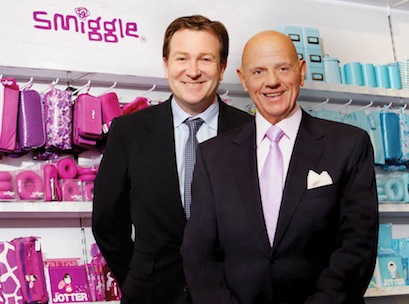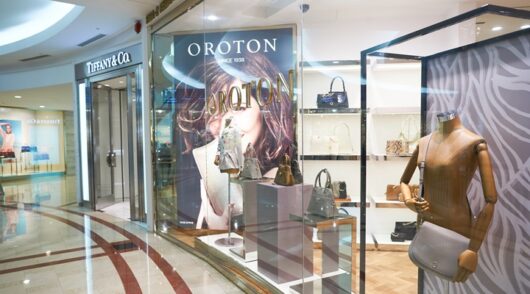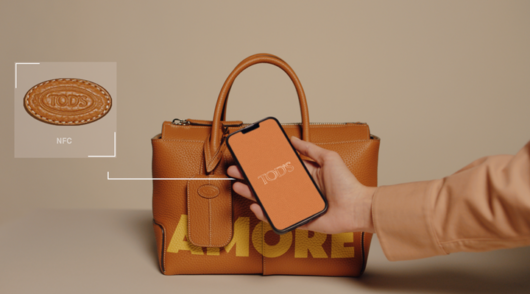 Premier Investments chairman Solomon Lew has asserted “cyclical factors will never become structural features” while reporting a profit increase at the retailer’s AGM last week.
Premier Investments chairman Solomon Lew has asserted “cyclical factors will never become structural features” while reporting a profit increase at the retailer’s AGM last week.
During FY17, Premier recorded underlying net profit before tax of $146.8 million, up 5.8 per cent on the prior year. Statutory reported net profit after tax was $105.1 million.
Sales for the year were up 5.7 per cent on the prior year to $1.1 billion and underlying earnings before interest and taxation (“EBIT”) of $136.0 million.
The long-term outlook for the group’s star business, stationery chain Smiggle was also upgraded.
Lew said Smiggle had been targeting sales revenue of more than $400 million by the 2020 financial year but the brand’s successful expansion means it is now expected to surpass $450 million within three years.
“This would mean almost a doubling of the record sales achieved in the 2017 financial year,” Lew told Premier’s annual general meeting in Melbourne on Friday.
Smiggle has 320 stores across Australia, New Zealand, Singapore, England, Scotland, Wales, Northern Ireland, Republic of Ireland, Hong Kong and Malaysia.
A further 12 will open during the first half of the current financial year and, on top of that, Smiggle will make its foray into continental Europe, starting with the Netherlands and Belgium in 2018.
Lew said Premier’s other stand-out retailer, sleepwear brand Peter Alexander, has a new three-year growth strategy.
The group will invest further in Peter Alexander’s online and new bricks and mortar stores with the goal of hitting more than $250 million in sales by 2020.
Lew said Premier’s other apparel brands, Portmans and Jacqui E have continued to see sales growth and Just Jeans and Jay Jays have “strong competitive market positions”.
However, he said Dotti was up against extreme competition from international entrants but, as previously stated, the group was negotiating lower rents with landlords.
Premier closed eight unprofitable stores during the 2017 financial year and was prepared to close more if excessive rents made them unprofitable, Lew said.
The value of the group’s stake in home appliance maker Breville has also grown, from $216.9 million at the end of the 2017 financial year to a current market value of about $470 million.
But its 10.8 per cent stake in Myer is a sore point, having fallen from $101 million in March to $67.7 million by the end of the 2017 financial year.
“Our ability to deliver year on year out performance has not relied on riding the up cycle of buoyant times for the Australian economy and the retail sector,” said Lew.
“The quality of a board and its capacity to contribute to both protect shareholders’ interests and add value in challenging times, is very evident when we compare our performance relative to some other Australian retailers.”
Lew said several cyclical factors relating to the general economy had been sustained over the period since the GFC.
“Most cyclical factors will never become structural features and improvements for consumers and retailers will inevitably emerge at some point to provide opportunity and further upside for well managed businesses.”
Premier also report growth in its online channel, with sales for the year of $68.1 million representing year on year growth of 44.3 per cent.
“We are now confident that our online sales will well exceed our original target of $100 million in annual sales much sooner than 2020,” said Lew.
On the Myer saga…
Lew told Premier’s shareholders that the group would continue to do everything it can to protect their investment.
“The pressure is on the Myer board – having aggressively denied our help – they must now deliver,” he said.
Lew has been publicly at war with the Myer board in recent months over its failure to turnaround the department store’s sales decline and for denying him three director seats on the board.
At Myer’s AGM in November, Lew garnered enough support to lead a first strike against Myer’s executives pay.
Premier received the support of approximately 10,000 shareholders in voting against the department store retailer’s board.
“The Myer board engaged in heavy proxy solicitation through specialist firms, directly lobbied institutional shareholders and retained an army of external consultants, PR specialists and lawyers,” he said.
“The passive role of a number of institutional shareholders, who are responsible for managing other people’s money, was deeply disappointing given that they are serving only to delay the inevitable as the business continues its very clear downward trajectory and further value is destroyed under this current Myer board.
“With apologies to fans of The Game of Thrones, my message to the Myer board is this: Summer is coming, the numbers won’t lie.”
Access exclusive analysis, locked news and reports with Inside Retail Weekly. Subscribe today and get our premium print publication delivered to your door every week.





